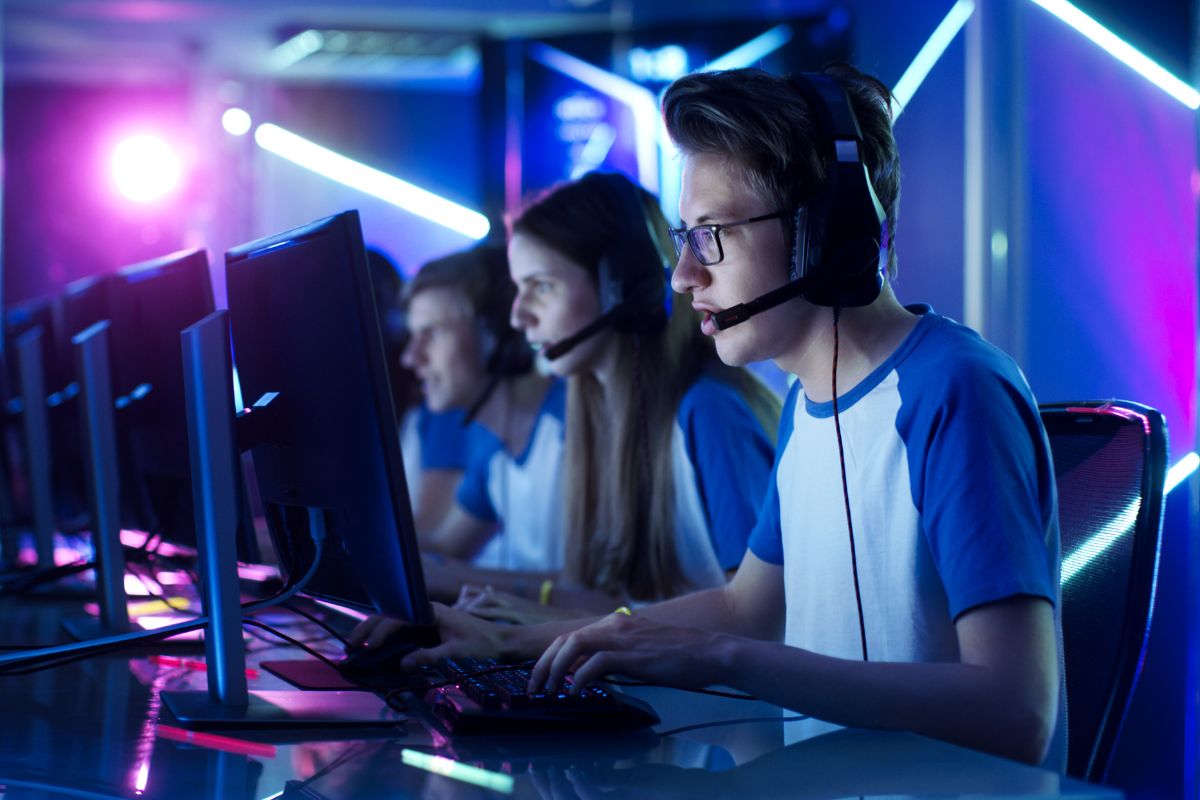Teamwork makes the dream work: Esports prepares the next generation for a better-connected society

Robert Elson from Stone, A Converge Company explores how the soaring popularity of esports is bleeding into UK education and the wealth of benefits it can bring students in order to thrive in a digitally-driven world.
According to Exploding Topics, there are approximately 3 billion active video game players worldwide. Once a niche hobby, gaming has exploded to become one of the biggest markets in the entertainment industry, projected to grow to a staggering $268 billion by 2025. And the same can be said for esports. Although its origins can be traced back to the 1980s, it wasn’t until the turn of the century where competitive gaming became professional, and today, the global esports market is predicted to grow to $172 billion this year. It’s a lucrative market and it comes as no surprise that education institutions across the UK are adopting esports into their curriculum, with 2020’s launch of a specialist BTEC being just one example of a dedicated focus on the activity.
It’s well documented that there is a positive correlation between video gameplay and increased cognitive performance in children, but as esports continues to be integrated into the curriculums of schools and universities, what benefits will it bring to the next generation?
Co-operation and teamwork can be enhanced through gameplay
Just like any sport, co-operation and working with your teammates is essential for achieving success. Granted, individual skill plays its part, just like a quality football player can dazzle on the day, but without the synergy and co-ordination as a unit, the performance will be lacking. Now apply this to esports within an education environment and the medium can play an important role in helping a wider demographic of students enhance their abilities to work well within a team.
Working with your peers requires communication, conflict management, active listening and mutual respect and these skills can be developed in esports as players work together as a team to achieve a goal; whether as a team leader or following co-ordinated instructions. For students who may lack the enthusiasm to participate or excel in traditional sports, esports can play an important role in helping them nurture and develop these skills.
Esports can unlock a higher level of a logical and strategic mindset
Numerous reports over the years have highlighted the positive effects video games have on shaping the cognitive abilities of its players. A study from 2015 from Australian and Chinese research teams found that gaming greatly improves problem-solving skills and logical thinking. The researchers performed fMRI scans on 27 professional gamers and found they had enhanced cognitive abilities, which includes improved problem-solving skills and logic.
Now, apply this to esports within the confines of education and this could have huge benefits for the next generation. To have logical and strategic thinking in your toolkit goes hand in hand with STEM skills, so adopting esports into your curriculum can help those students looking to explore careers within the fields of science, technology, engineering, and mathematics.
A community spirit sits at the heart of esports
Adopting esports into your curriculum can bring a wealth of cognitive benefits for your students, but the community spirit that comes with the territory cannot be understated. By offering esports as an extracurricular activity, schools will be able to reach students who would otherwise be distant or detached from their peers. This can be achieved through the creation of a common room of sorts, in which the activity will allow students to all liaise and come together in a fun, less stressful environment. By feeling like they are a part of community, it’s likely this will lead to increased engagement during classes resulting in better performances on their examinations.
Esports has evolved considerably and as the games industry continues to be a major player in the wider entertainment industry, it’s clear that esports will continue to be a lucrative prospect for equipping students with the skills the 21st century demands, along with inspiring them to achieve greatness in their immediate studies and future careers.
Esports education can play a crucial role in developing different ways of thinking and learning. As technology continues to innovate and integrate with education, it’s likely that esports will have an important role to play. Not only will the medium equip the next generation with the technological skills and knowledge to thrive in a digitally-driven world, but it will help foster and nurture relationships to instil a team spirit to help drive students to make a valuable contribution to society.
By Robert Elson, Product Manager – Servers, Storage & High Performance Workstations at Stone, A Converge Company











Responses